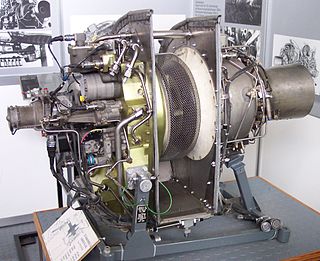Related Research Articles

The Gracchi brothers, Tiberius and Gaius, were Romans who both served as tribunes of the plebs between 133 and 121 BC. They attempted to redistribute the occupation of the ager publicus—the public land hitherto controlled principally by aristocrats—to the urban poor and veterans, in addition to other social and constitutional reforms. After achieving some early success, both were assassinated by the Optimates, the conservative faction in the senate that opposed these reforms.

Gaius Sempronius Gracchus was a Roman Popularis politician in the 2nd century BC and brother of the reformer Tiberius Sempronius Gracchus. His election to the office of tribune in the years 123 BC and 122 BC and reformative policies while in office prompted a constitutional crisis and his death at the hands of the Roman Senate in 121 BC.
Antoninus is a Latin masculine given name that is an alternate form of Antonius. It an Ancient Roman family name which derived from Antonius the Latin form of Anthony.

Titus Aurelius Fulvus was a Roman senator, who was active during the reign of Domitian. He was ordinary consul in AD 89 with Marcus Asinius Atratinus as his colleague. Fulvus is best known as the father of Roman Emperor Antoninus Pius. His father, also named Titus Aurelius Fulvus, had also been twice consul and promoted to the patrician class.
Gnaeus Arrius Antoninus was the maternal grandfather of the Emperor Antoninus Pius. A member of gens Arria, a family of consular rank, Antoninus was also an office holder, having been twice consul: the first time was in 69 with Aulus Marius Celsus as his colleague, and the second in 97 with Gaius Calpurnius Piso as his colleague. Antoninus was also proconsul of Asia in 78/79.

The Turbomeca Arrius is one of a family of turboshaft engines for helicopter use, first produced in 1981. As of 2012, some 2,700 units had been sold. Power ranges between 357 kW and 530 kW for different versions. Following Turbomeca tradition, the Arrius was named after a Pyrenean peak, located in the Ossau Valley near Pau.
Marcus Arrecinus Clemens, was a prefect of the Praetorian Guard during the reign of Vespasian. In return for his faithful service, Clemens was promoted to other important positions, including being twice consul and urban prefect of Rome.

Colonia Ulpia Traiana Augusta Dacica Sarmizegetusa was the capital and the largest city of Roman Dacia, later named Ulpia Traiana Sarmizegetusa after the former Dacian capital, located some 40 km away. Built on the ground of a camp of the Fifth Macedonian Legion, the city was settled by veterans of the Dacian wars. From the very beginning it received the title of colonia and the status of ius Italicum. With an area of 30 hectares, a population between 20,000 and 25,000, and strong fortifications, Ulpia Traiana was the political, administrative and religious centre of Roman Dacia in the 2nd and 3rd centuries.
The gens Arria was a plebeian family at ancient Rome, which occurs in history beginning in the final century of the Republic, and became quite prominent in imperial times. The first of the gens to achieve prominence was Quintus Arrius, praetor in 72 BC.

Ben Hur is a TV miniseries that first aired in 2010. Based on Lew Wallace's 1880 novel, Ben-Hur: A Tale of the Christ, the series was produced by Alchemy Television Group in association with Drimtim Entertainment and Muse Entertainment in Montreal. It aired on Canada's CBC network on April 4, 2010, and aired later in 2010 on ABC in the United States.
Marcus Nonius Arrius Mucianus was an imperial Roman politician and Senator at the beginning of the 3rd century CE. Mucianus grew up in Verona. He may have been the son of Marcus Nonius Arrius Mucianus Manlius Carbo, Suffect Consul, likely under the emperor Commodus, and the grandson of Marcus Nonius Macrinus, Suffect Consul in 154 CE. His wife was Sextia Asinia Polla. Mucianus became an ordinary consul in 201 CE and, from 204 CE onwards, he became one of the quindecimviri sacris faciundis, a sacred priest in charge of the Sibylline Books. In Verona, he became a curator and patron.
Quintus Arrius was a Roman praetor in 73 BC. In the next year he should follow Gaius Verres as governor of Sicilia. But first he had to support the consuls Lucius Gellius Publicola and Gnaeus Cornelius Lentulus Clodianus in the Third Servile War against the leaders of the rebellious slaves, Spartacus and Crixus. In the battle in which Arrius conquered Crixus 20,000 slaves are said to have been killed; but Arrius was soon after defeated by Spartacus. A scholiast on Cicero said that Quintus Arrius thereafter went to Sicily to take over this province from Verres, but died on the way there. However, the scholiast does not seem to be well informed, and the veracity of his assertion is doubtful. It only can be said that Quintus Arrius did not govern Sicilia.

The gens Nonia was a plebeian family at ancient Rome. Its members first appear in history toward the end of the Republic. The first of the Nonii to obtain the consulship was Lucius Nonius Asprenas in 36 BC. From then until the end of the fourth century, they regularly held the highest offices of the Roman state.
Publius Martius Verus was a Roman senator and general. He was twice consul. Verus played a major role in the suppression of the revolt of Avidius Cassius by remaining loyal to the emperor Marcus Aurelius.
The gens Oscia was an obscure plebeian family at Rome. Members of this gens are first mentioned in imperial times, when a few of them appear among the Roman aristocracy. None of them are known to have held any magistracies, but an Oscia Modesta was the wife of a Roman consul during the time of Severus Alexander. A number of Oscii appear in inscriptions.
Publius Julius Geminius Marcianus was a Roman senator and general. He participated in the Roman–Parthian War of 161–166. Marcianus was appointed suffect consul in either 165 or 166.
Marcus Cutius Priscus Messius Rusticus Aemilius Papus Arrius Proculus Julius Celsus was a Roman senator who held a series of offices in the emperor's service. He was suffect consul for the nundinium of May to August 135 as the colleague of Lucius Burbuleius Optatus Ligarianus. Papus is known solely through inscriptions.
Gaius Arrius Antoninus was a Roman senator and jurist active in the last half of the second century AD, who held a number of offices in the emperor's service. The date when he was suffect consul is not attested, but has been estimated to be around AD 173. Edward Champlin includes him, along with Gaius Aufidius Victorinus and Tiberius Claudius Julianus, as "marked out as a special intimate of Fronto's." Champlin notes that while Victorinus received five of the surviving letters of the rhetor Fronto, "as the beloved pupil and son-in-law", Antoninus received four, taking "the place of Fronto's son."
Tiberius Claudius Julianus was a Roman senator and literary figure who held several offices in the imperial service during the later second century AD. He was suffect consul during the nundinium of September-October 154 with Sextus Calpurnius Agricola as his colleague.